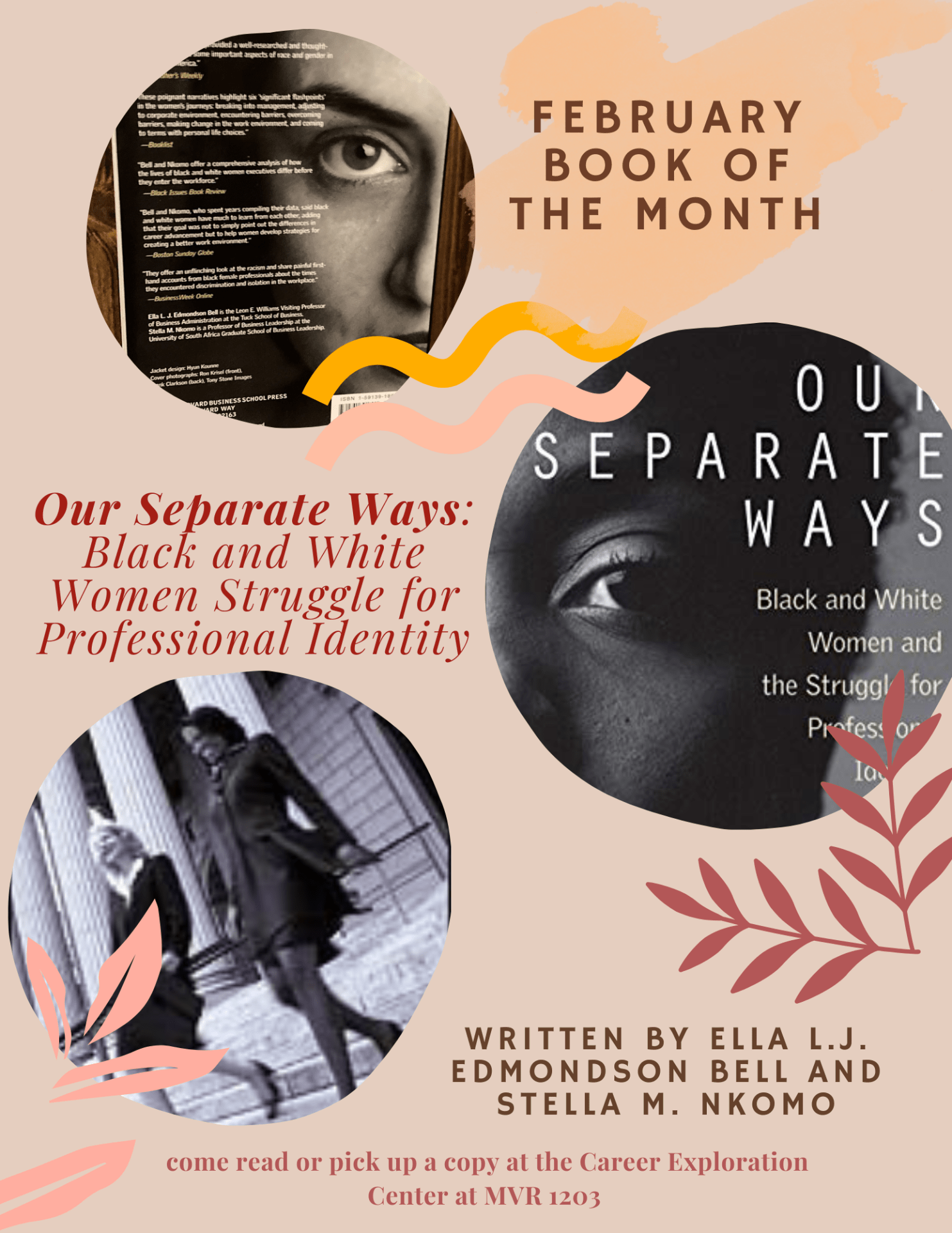Our Separate Ways: Black and White Women and the Struggle for Professional Identity
By Ella L.J. Edmondson Bell and Stella M. Nkomo
In honor of Black History Month this February, we will be reading Our Separate Ways: Black and White Women and the Struggle for Professional Identity by Ella L.J. Edmondson Bell and Stella M. Nkomo. For many years, the issue of not having enough women and Black people in executive and managerial positions in the corporate world has highlighted ongoing prejudices based on gender and race. Bell and Nkomo provide perspectives of Black and white women in corporate America, emphasizing the different experiences that individuals face in the workplace based on their race and gender. In an attempt to help corporate workers understand the various perspectives in their workplace, Bell and Nkomo promote conversations regarding topics such as whether Black women associate more with white women or Black men. The book brings up a diverse array of topics and ideas that can help corporate America promote a more inclusive and supportive environment for their workers, especially those of whom face prejudices based on race and/or gender.
The book is divided into three parts that each highlight different aspects of Black and white women in the workforce:
- Part I: Flashbacks. This section provides the perspectives of 14 women in the corporate world. They share their experiences starting from childhood and detailing their family life, education, and more.
- Part II: Flashpoints. This section highlights common challenges faced by females with executive or managerial positions. While everyone has different experiences, some moments and mindsets are shared by many women in these positions, helping emphasize points of concern and areas in need of improvement in the corporate world. This part of the book also explores the impact of race, gender, and social class on women’s experiences.
- Part III: The Self and the Other. This section details the experiences of white and Black women separately, exploring their perspectives, opinions, and more, highlighting the impact of race between the two groups of women.
Finally, the Epilogue provides a “call to action,” starting conversation topics regarding bridging the gap between white and Black women in the corporate world and helping them understand how to best share their personal experiences with each other. The Epilogue also lays out advice on how companies can go about using the information provided by this book to improve their workplace and make it more inclusive and accessible to everyone.
If you would like to read the book or know more about it, feel free to come to MVR 1203 and check it out! 
